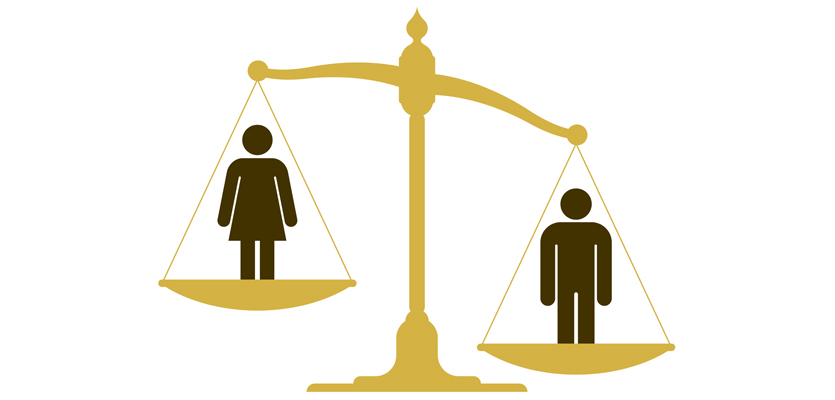Patriarchy and gender ‘malestreaming’ in the Nigerian National Assembly
In her 2015 official statistical report on women and men in Nigeria, the National Bureau of Statistics estimated Nigeria’s population distribution by sex at 49.5% women and 50.5% men. Despite the not-so-significant difference in the population of males and females, Nigerian men consistently degrade and treat their female counterparts as minors and appendages undeserving of […]

Gender Imbalance
In her 2015 official statistical report on women and men in Nigeria, the National Bureau of Statistics estimated Nigeria’s population distribution by sex at 49.5% women and 50.5% men. Despite the not-so-significant difference in the population of males and females, Nigerian men consistently degrade and treat their female counterparts as minors and appendages undeserving of the fundamental human freedoms naturally bestowed on all citizens irrespective of sex, gender, creed, race, or colour.
Nigeria has, on paper, demonstrated commitment to such international human rights instruments like the Universal Declaration on Human Rights; the Convention on the Elimination of All Forms of Discrimination against Women; the Declaration on the Elimination of Violence against Women; the Protocol to the African Charter on Human and Peoples’ Rights on the Rights of Women; the African Union Solemn Declaration on Gender Equality; as well as to all the targets and goals contained in the Sustainable Development Goals including the gender equality related ones. The Fourth World Conference on Women (1995) emphasized that “Women’s empowerment and their full participation on the basis of equality in all spheres of society, including participation in the decision-making process and access to power, are fundamental for the achievement of equality, development, and peace.”
- Why Nigeria’s N261.8bn catfish industry is in danger
- Intrigues, realignment in PDP as North pushes for open contest, South zoning
Herein lies the idea of gender mainstreaming, a process that ensures equitable access to society’s valued resources, rewards, and opportunities by both women and men. Thus, gender mainstreaming is a moral imperative meant to promote prosperity and well-being for all. It is not an option for a few men in power.
The differences in gender roles and responsibilities imply differentials in how laws, policies, and programmes impact women and men. The role of patriarchal attitudes in the rejection of the 5 gender equality-related amendment bills is very clear. The rejected bills are: (1) reserved seats for women; (2) citizenship for women’s foreign spouse; (3) affirmative action for political offices; (4) the provision of a minimum of 20 percent of ministerial or commissioner nominees for women (5) indigeneship right in the state of a woman’s male spouse after five years of marriage. Why deny women equitable access to society’s common resources, opportunities, and rewards that men already enjoy? Why deny women who bear the burden of development, equal participation in shaping the direction of the same development? How can Nigeria truly develop if 50.5% of her population prefer to travel alone attempting to leave behind an indispensable 49.5%? These patriarchal attitudes and practices of political leaders, especially in regions where female education and opportunities to participate in the public sphere are very few and far between, have severe implications for gender equality; human rights abuses; socio-economic development; and the general wellbeing of women and girls.
The demands of our courageous women who have acted as our collective conscience by occupying the main entrance of our National Assembly, a strategic symbol of our democracy, should be appreciated by our egocentric and insensitive men by ensuring that the women get their “5 over 5” demand before the end of March. This is the only way they can confirm to the world the sincerity of the Nigerian government in ratifying the international and regional instruments against gender discrimination and inequality in this 21st century.
Titilayo C. Orisaremi (PhD) is a Gender Specialist and an Associate Professor of Sociology at Baze University, Abuja, Nigeria.
